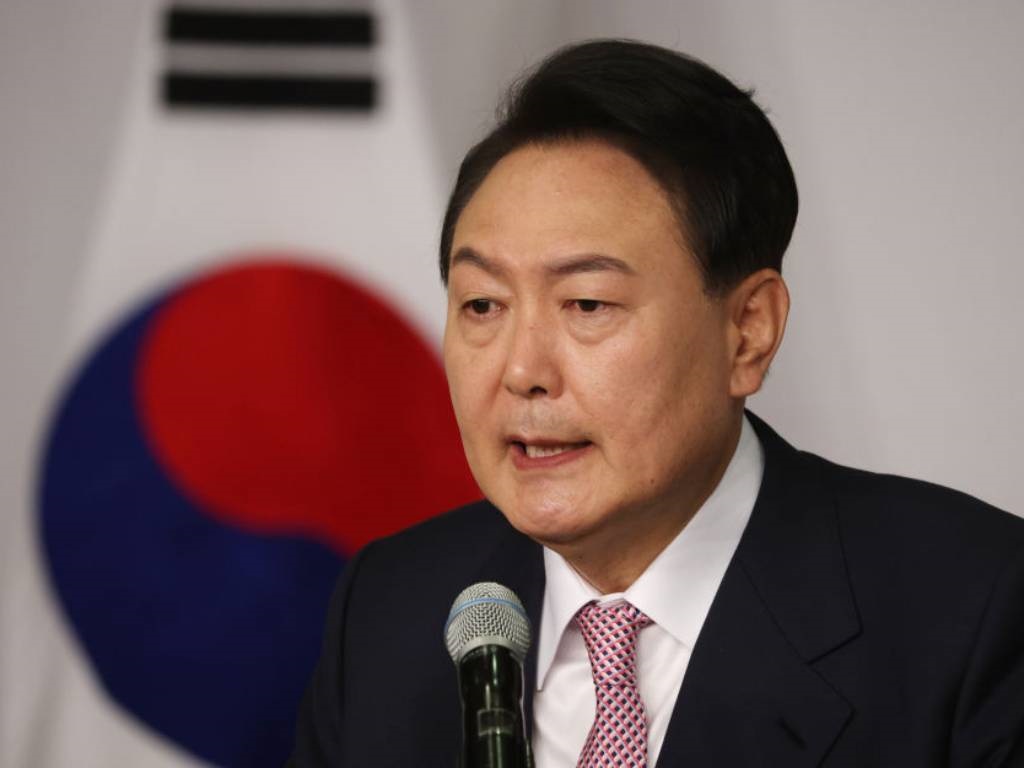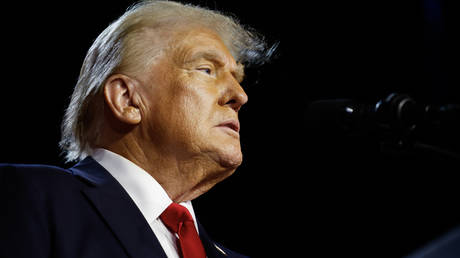Mr. Marco Mancini, the ambassador of Italy to the State of Eritrea, shared his insights on the bilateral relations between Eritrea and Italy during a brief interview with Eritrea Profile. This interaction marked the conclusion of his four-year tenure in Asmara, Eritrea. Below are excerpts from the interview:
How would you assess the overall state of bilateral relations between Italy and Eritrea during your tenure? What specific steps have you taken to strengthen these ties, particularly in trade, investment, and cultural exchange?
I have been in Eritrea for four years and three months, which is quite a significant period. When my wife and I first arrived in Asmara, the world was grappling with a severe COVID-19 outbreak. Once the pandemic subsided, I began engaging with local governmental institutions and the Confederation of Workers. The real and substantial work started after the pandemic.
One of our major accomplishments was the reopening of Casa Del Italiani, the socio-cultural center in Asmara. This was achieved with the Government’s full collaboration. We organized a series of vibrant cultural events, including film screenings, art exhibitions, and more. As a result, the center has become a vital hub for cultural exchange and cooperation between Italy and Eritrea.
Regarding trade and investment, we engaged in extensive discussions with the Government. His Excellency, President Isaias Afwerki, referred to, in an interview last year, Eritrea’s prevailing stability and long-lasting peace. I firmly believe that these two elements are fundamental for both social and political development.
Eritrea is on the brink of significant reforms, particularly in infrastructure development and other key opportunities. This country holds immense potential in its economy, industry, and raw materials. For us as Western investors, having a clear legal framework is crucial to attracting foreign investments. I am aware that the Ministry of Justice is conducting an in-depth analysis on these legal reforms. This, in my view, is the next crucial step. Trade between Eritrea and Italy has been ongoing for many years, but there is still room for improvement. Industrial and economic development must start with incremental, positive steps. We are not envisioning massive projects but rather gradual improvements. Additionally, fostering cultural growth through Casa Del Italiani remains a key priority, as it reflects the shared history and cultural harmony between our nations. President Isaias Afwerki’s visit to Italy in January 2025 Marked a Significant Milestone.
What specific agreements or understandings did this visit contribute to the deepening of bilateral relations?
President Isaias’ visit to Italy marked a pivotal milestone in our bilateral relations. Not only did His Excellency participate in the Italy- Africa Summit in 2024, but he also spent more than 10 days in Italy, an unprecedented event. This visit was an exceptional experience for both Italy and the international community. The significance of this visit extended beyond meetings with the Italian Prime Minister and other Governmental Ministers. His Excellency also took the initiative to visit various regions across Italy, observing diverse production companies—a unique trait of his leadership style. Such hands-on engagement allowed him to return to Eritrea with a wealth of insightful ideas. For Italy and Eritrea, this visit represented the beginning of a new era of collaboration built on mutual respect and equity. It introduced a fresh platform for cooperation, emphasizing dialogue and partnership rather than one-sided directives from Western nations. In the context of African nations like Eritrea, this collaborative approach aligns with their need for targeted, mutually beneficial projects. His Excellency President Isaias Afwerki enthusiastically embraced this new philosophy. The Summit’s agenda is evolving, and we have many projects in the pipeline.
Mr. Ambassador, what opportunities do you see for further economic cooperation between the two countries, especially in sectors like agriculture, renewable energy, and tourism? Could you prioritize any specific initiatives or projects?
Following His Excellency’s visit to Italy, our Minister for Italian-made Enterprises undertook his first operational mission to Eritrea. He arrived with a significant level of responsibility, representing major Italian groups engaged in the ports, naval, railway, agro-technology, and health sectors. During his visit, the Minister held an extensive meeting with the President and other Ministers, where they discussed a wide range of issues and potential collaborations.
Meeting with President Isaias -Ambassador Marco Mancini with the
Italian delegation headed by Senator Stefania Craxi
Around the same time, we welcomed the visit of the Presidency for the Senate of Foreign Affairs and Defense Committee, led by Senator Stefania Craxi. She also held discussions with His Excellency President Isaias Afwerki, covering a comprehensive 360-degree view of bilateral relations. In my opinion, this visit was particularly significant, as it laid the groundwork for further cooperation between the two nations.
From both my perspective and that of the Embassy, it would have been advantageous to host additional visits from Italian officials. However, the current global situation has been tumultuous, with international events such as the crises in Palestine and Ukraine disrupting planned engagements. For instance, the Italian Minister of Defense had planned to visit Eritrea but had to cancel the proposed date due to these pressing international developments. Despite these challenges, I remain highly optimistic. I am confident that the coming year will bring more opportunities for such visits, paving the way for enhanced collaboration and deeper ties between Italy and Eritrea in key economic sectors.
How does Italy view Eritrea’s role in promoting regional peace and stability in the Horn of Africa? How has Italy supported these efforts?
When Ambassadors complete their missions, it is customary to send a letter of end-of-mission to the (Italian) Minister of Foreign affairs. I have already composed and dispatched this letter, and its primary focus is to highlight Eritrea as a uniquely stable country in the region. Eritrea is free from conflict, with secure borders, and this stability is of paramount importance from both political and economic perspectives.
From an economic standpoint, stability is essential for attracting foreign investment. Investors are unlikely to consider a country plagued by turmoil, conflicts, or terrorism. Eritrea’s stability positions it as a key player in the stabilization of the entire Horn of Africa. Observing the current challenges in Ethiopia, Sudan, Somalia, and even Kenya, Eritrea stands out as a beacon of stability. President Isaias’ deep understanding of the regional dynamics and his high regard among neighboring leaders further solidify Eritrea’s crucial role.
I align with the President’s perspective that internal stability is a foundational requirement, as external interference often leads to instability and conflict. Eritrea’s geo-strategic position, with over 1,200 kilometers of coastline along the Red Sea and abundant natural resources, enhances its importance. Diplomatically, engaging with Eritrea should be a natural priority, as it plays a pivotal role in regional peace and security.
While there are aspects that could be improved, I believe that from a pragmatic and diplomatic perspective, Eritrea deserves greater recognition from the Western world. Italy, in particular, can and should play a more active role in fostering this engagement and supporting Eritrea’s contributions to regional stability.
How has Italy worked with Eritrea in international forums, particularly within the European Union and the United Nations? What shared objectives and priorities have the two countries pursued?
I recall a significant discussion two years ago within the European Union among Member States regarding the imposition of sanctions. Italy stood out as one of the few countries that strongly opposed sanctions, arguing that they were counterproductive and entirely ineffective as a tool in international relations, especially concerning countries like Eritrea. Eventually, the United Nations lifted the sanctions. For us, sanctions are an unproductive diplomatic measure. In extreme cases, they may be reinstated, but only as a last resort.
In my reports, I consistently emphasized that Eritrea was sanctioned based on unproven allegations. The international community recognizes that parts of the Eritrean border with Ethiopia belong to Eritrea, not Ethiopia. Italy’s interest in engaging with and collaborating with Eritrea remains strong, even though other member countries might not share the same enthusiasm. I consider this a case of short-sightedness—a failure to appreciate Eritrea’s perspective and potential.
While political stability is essential, it is equally important to explore Eritrea’s raw material potential, particularly in the oil and energy sectors. This raises a critical question: Why not invest here? Of course, both sides must take necessary steps to make this collaboration possible. Italian investors are indeed interested, but they need a clear legal framework to ensure their investments are safeguarded. Establishing this framework is the next critical step.
In the international arena, Italy has consistently supported Eritrea in various aspects due to the unique nature of our bilateral relationship. This support is rooted in mutual respect and shared priorities, aiming to strengthen political, economic, and cultural ties while fostering development and collaboration.
What personal experiences have you had with Eritrean culture and people during your time here? How have these experiences enriched your understanding of Eritrea and its people?
This is the most significant question for me. In diplomatic terms, this post is considered a “hardship assignment”, which means that after two years, one can request to return or transfer to another country. When we first arrived, I was somewhat concerned about my wife’s situation. While I had my work to focus on, she was left alone. But then, something extraordinary, happened: love blossomed. I use the word “love” intentionally because we truly fell in love with the people of Eritrea.
Life here is simple. It is not without its challenges, but what genuinely touched us were the smiles on people’s faces and their cheerful hearts, even amidst difficulties. Now, as we prepare to return to Italy, we find ourselves paradoxically apprehensive about resuming the fast-paced lifestyle and stressful habits that dominate life in the so-called “civilized” Western world.
Here in Eritrea, we received the invaluable gifts of relaxation, a sense of hospitality, and a simpler way of life. We will miss these gifts deeply. We are always ready to welcome the friends we made here as honorable guests in our country whenever they visit.
We also hope to return as tourists to savor Eritrea’s breathtaking landscapes, from the seas to the mountains, its pleasant weather, and the absence of major diseases. This country is truly unique. Our admiration for Eritrean people, their culture, and their traditions—which, in many ways, harmonize beautifully with Italian culture—has left an indelible mark on our hearts.
During the visit of the Minister for Italian-made Enterprises
Mr. Ambassador, as you conclude your tenure, what are your hopes for the future of Eritrea-Italy relations? What advice would you give to your successor to further strengthen these ties?
I am deeply optimistic about the future of bilateral relations and consider myself fortunate to have engaged with this Government. I hope my message has been clear— it’s often important to plant a seed in your heart, and its fruits will emerge in time, even after you leave. In my view, 2025 will be a pivotal year for Eritrea-Italy relations.
For now, the future is in the hands of my successor for the time being until a new Ambassador arrives, Mr. Paulo Zampella, the Second Secretary at the Italian Embassy, who has been here for two years. He is a brilliant young diplomat who, in my opinion, shares my sentiments and demonstrates a strong commitment to working with the Eritrean Government and people. I firmly believe that the coming year will mark a turning point in our bilateral ties.
Any final words, Mr. Ambassador?
My most heartfelt message is to express my gratitude for the four years of intense and invaluable experiences I’ve had here. My wife and I are leaving Eritrea with heavy hearts, but we carry with us lasting memories and friendships. We hope to return as tourists to reconnect with the wonderful people we have met.
Thank you very much.




+ There are no comments
Add yours